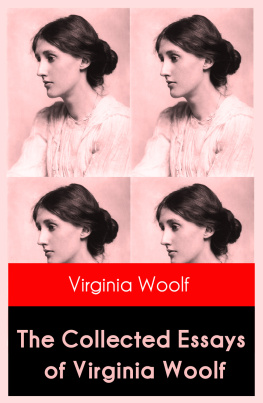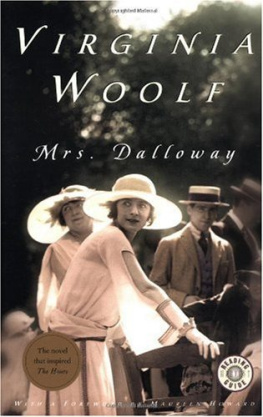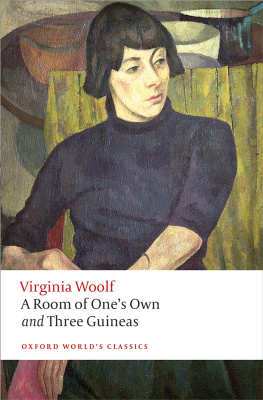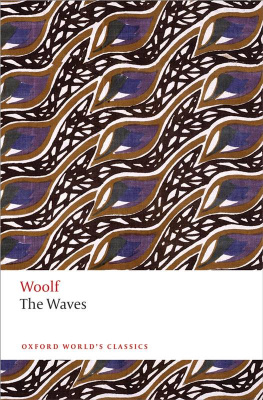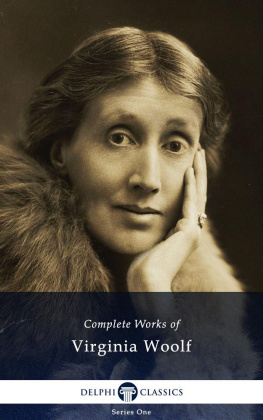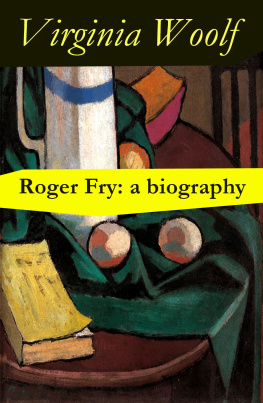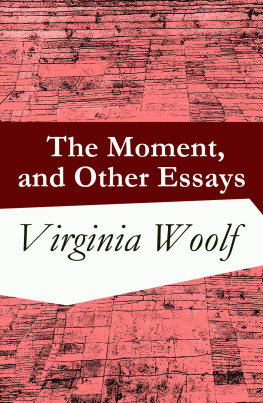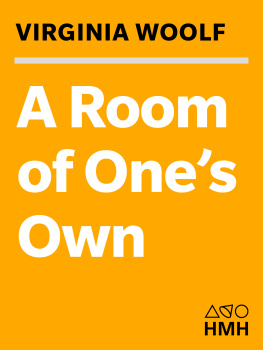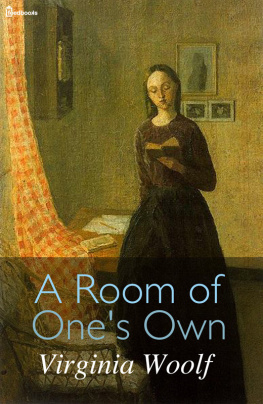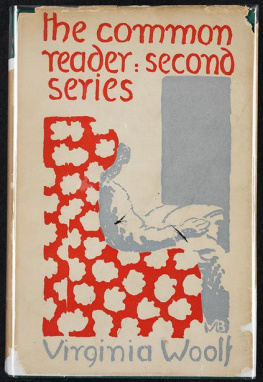THE COMMON READER
There is a sentence in Dr. Johnsons Gray which might well be written up in all those rooms, too humble to be called libraries, yet full of books, where the pursuit of reading is carried on by private people. I rejoice to concur with the common reader; for by the common sense of readers, uncorrupted by literary prejudices, after all the refinements of subtilty and the dogmatism of learning, must be finally decided all claim to poetical honours. It defines their qualities; it dignifies their aims; it bestows upon a pursuit which devours a great deal of time, and is yet apt to leave behind it nothing very substantial, the sanction of the great mans approval.
The common reader, as Dr. Johnson implies, differs from the critic and the scholar. He is worse educated, and nature has not gifted him so generously. He reads for his own pleasure rather than to impart knowledge or correct the opinions of others. Above all, he is guided by an instinct to create for himself, out of whatever odds and ends he can come by, some kind of wholea portrait of a man, a sketch of an age, a theory of the art of writing. He never ceases, as he reads, to run up some rickety and ramshackle fabric which shall give him the temporary satisfaction of looking sufficiently like the real object to allow of affection, laughter, and argument. Hasty, inaccurate, and superficial, snatching now this poem, now that scrap of old furniture, without caring where he finds it or of what nature it may be so long as it serves his purpose and rounds his structure, his deficiencies as a critic are too obvious to be pointed out; but if he has, as Dr. Johnson maintained, some say in the final distribution of poetical honours, then, perhaps, it may be worth while to write down a few of the ideas and opinions which, insignificant in themselves, yet contribute to so mighty a result.
JANE EYRE AND WUTHERING HEIGHTS
Of the hundred years that have passed since Charlotte Bronte was born, she, the centre now of so much legend, devotion, and literature, lived but thirty-nine. It is strange to reflect how different those legends might have been had her life reached the ordinary human span. She might have become, like some of her famous contemporaries, a figure familiarly met with in London and elsewhere, the subject of pictures and anecdotes innumerable, the writer of many novels, of memoirs possibly, removed from us well within the memory of the middle-aged in all the splendour of established fame. She might have been wealthy, she might have been prosperous. But it is not so. When we think of her we have to imagine some one who had no lot in our modern world; we have to cast our minds back to the fifties of the last century, to a remote parsonage upon the wild Yorkshire moors. In that parsonage, and on those moors, unhappy and lonely, in her poverty and her exaltation, she remains for ever.
These circumstances, as they affected her character, may have left their traces on her work. A novelist, we reflect, is bound to build up his structure with much very perishable material which begins by lending it reality and ends by cumbering it with rubbish. As we open JAYNE EYRE
once more we cannot stifle the suspicion that we shall find her world of imagination as antiquated, mid-Victorian, and out of date as the parsonage on the moor, a place only to be visited by the curious, only preserved by the pious. So we open JAYNE EYRE; and in two pages every doubt is swept clean from our minds.
Folds of scarlet drapery shut in my view to the right hand; to the left were the clear panes of glass, protecting, but not separating me from the drear November day. At intervals, while turning over the leaves of my book, I studied the aspect of that winter afternoon.
Afar, it offered a pale blank of mist and cloud; near, a scene of wet lawn and storm-beat shrub, with ceaseless rain sweeping away wildly before a long and lamentable blast.
There is nothing there more perishable than the moor itself, or more subject to the sway of fashion than the long and lamentable blast. Nor is this exhilaration short-lived. It rushes us through the entire volume, without giving us time to think, without letting us lift our eyes from the page. So intense is our absorption that if some one moves in the room the movement seems to take place not there but up in Yorkshire. The writer has us by the hand, forces us along her road, makes us see what she sees, never leaves us for a moment or allows us to forget her. At the end we are steeped through and through with the genius, the vehemence, the indignation of Charlotte Bronte. Remarkable faces, figures of strong outline and gnarled feature have flashed upon us in passing; but it is through her eyes that we have seen them. Once she is gone, we seek for them in vain. Think of Rochester and we have to think of JAYNE EYRE. Think of the moor, and again there is JAYNE EYRE. Think of the drawing-room, [Note, below] even, those white carpets on which seemed laid brilliant garlands of flowers, that pale Parian mantelpiece with its Bohemia glass of ruby red and the general blending of snow and firewhat is all that except JAYNE EYRE?
[Note: Charlotte and Emily Bront had much the same sense of colour.
we sawah! it was beautifula splendid place carpeted with crimson, and crimson-covered chairs and tables, and a pure white ceiling bordered by gold, a shower of glass drops hanging in silver chains from the centre, and shimmering with little soft tapers (WUTHERING HEIGHTS).
Yet it was merely a very pretty drawing-room, and within it a boudoir, both spread with white carpets, on which seemed laid brilliant garlands of flowers; both ceiled with snowy mouldings of white grapes and vine leaves, beneath which glowed in rich contrast crimson couches and ottomans; while the ornaments on the pale Parian mantelpiece were of sparkling Bohemia glass, ruby red; and between the windows large mirrors repeated the general blending of snow and fire (JANE EYRE).]
The drawbacks of being Jane Eyre are not far to seek. Always to be a governess and always to be in love is a serious limitation in a world which is full, after all, of people who are neither one nor the other.
The characters of a Jane Austen or of a Tolstoi have a million facets compared with these. They live and are complex by means of their effect upon many different people who serve to mirror them in the round. They move hither and thither whether their creators watch them or not, and the world in which they live seems to us an independent world which we can visit, now that they have created it, by ourselves. Thomas Hardy is more akin to Charlotte Bronte in the power of his personality and the narrowness of his vision. But the differences are vast. As we read JUDE
THE OBSCURE we are not rushed to a finish; we brood and ponder and drift away from the text in plethoric trains of thought which build up round the characters an atmosphere of question and suggestion of which they are themselves, as often as not, unconscious. Simple peasants as they are, we are forced to confront them with destinies and questionings of the hugest import, so that often it seems as if the most important characters in a Hardy novel are those which have no names. Of this power, of this speculative curiosity, Charlotte Bront has no trace. She does not attempt to solve the problems of human life; she is even unaware that such problems exist; all her force, and it is the more tremendous for being constricted, goes into the assertion, I love, I hate, I suffer.
For the self-centred and self-limited writers have a power denied the more catholic and broad-minded. Their impressions are close packed and strongly stamped between their narrow walls. Nothing issues from their minds which has not been marked with their own impress. They learn little from other writers, and what they adopt they cannot assimilate. Both Hardy and Charlotte Bront appear to have founded their styles upon a stiff and decorous journalism. The staple of their prose is awkward and unyielding. But both with labour and the most obstinate integrity, by thinking every thought until it has subdued words to itself, have forged for themselves a prose which takes the mould of their minds entire; which has, into the bargain, a beauty, a power, a swiftness of its own.

